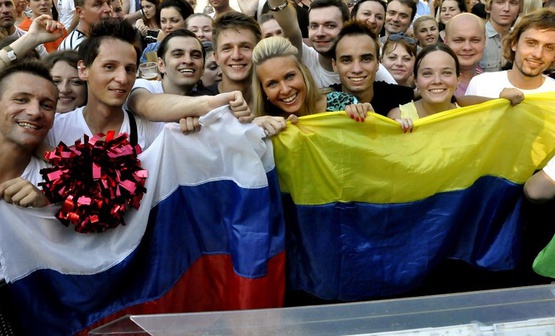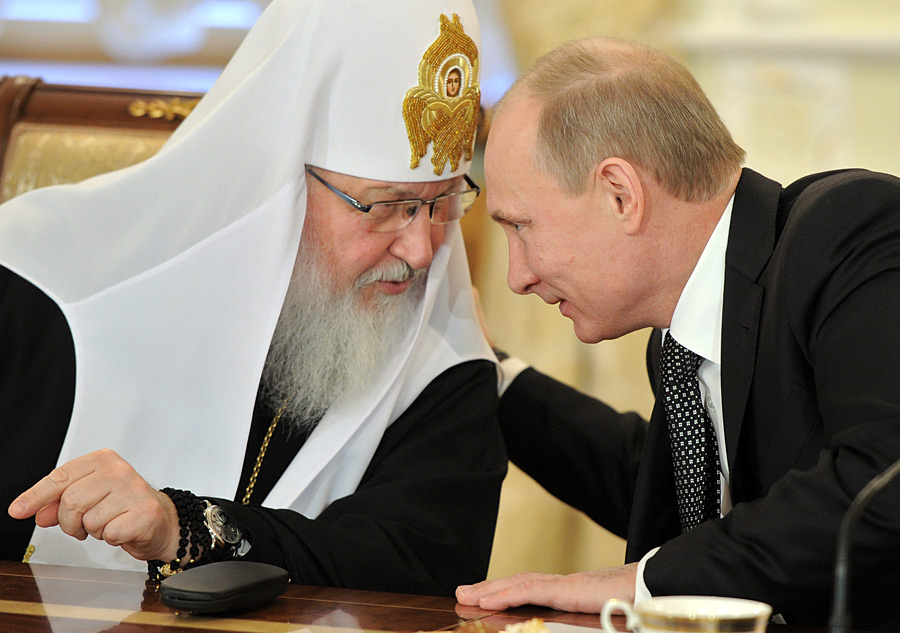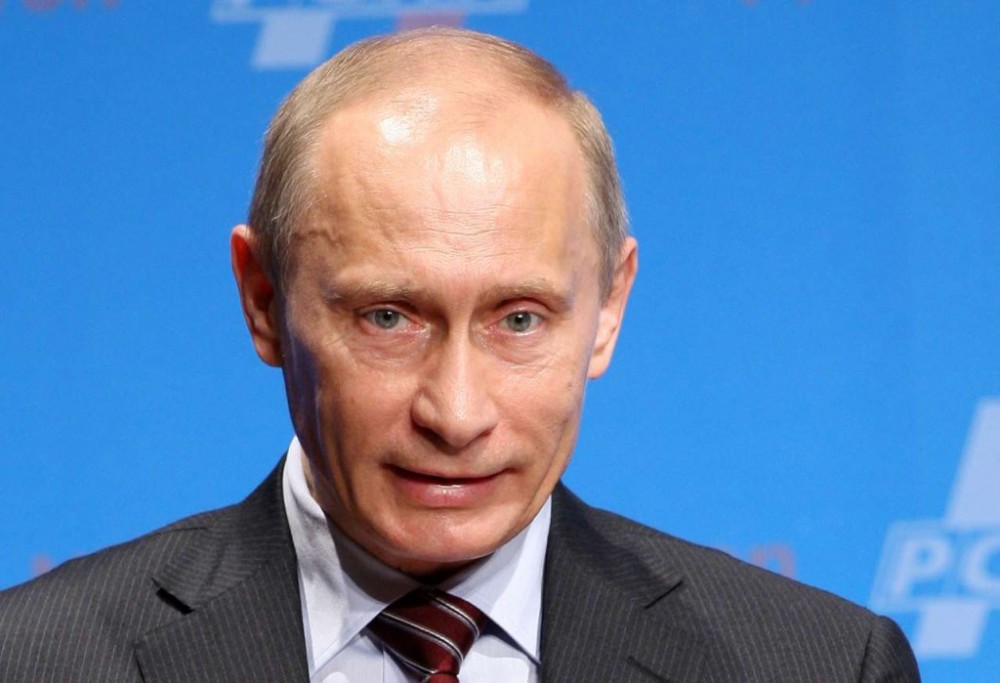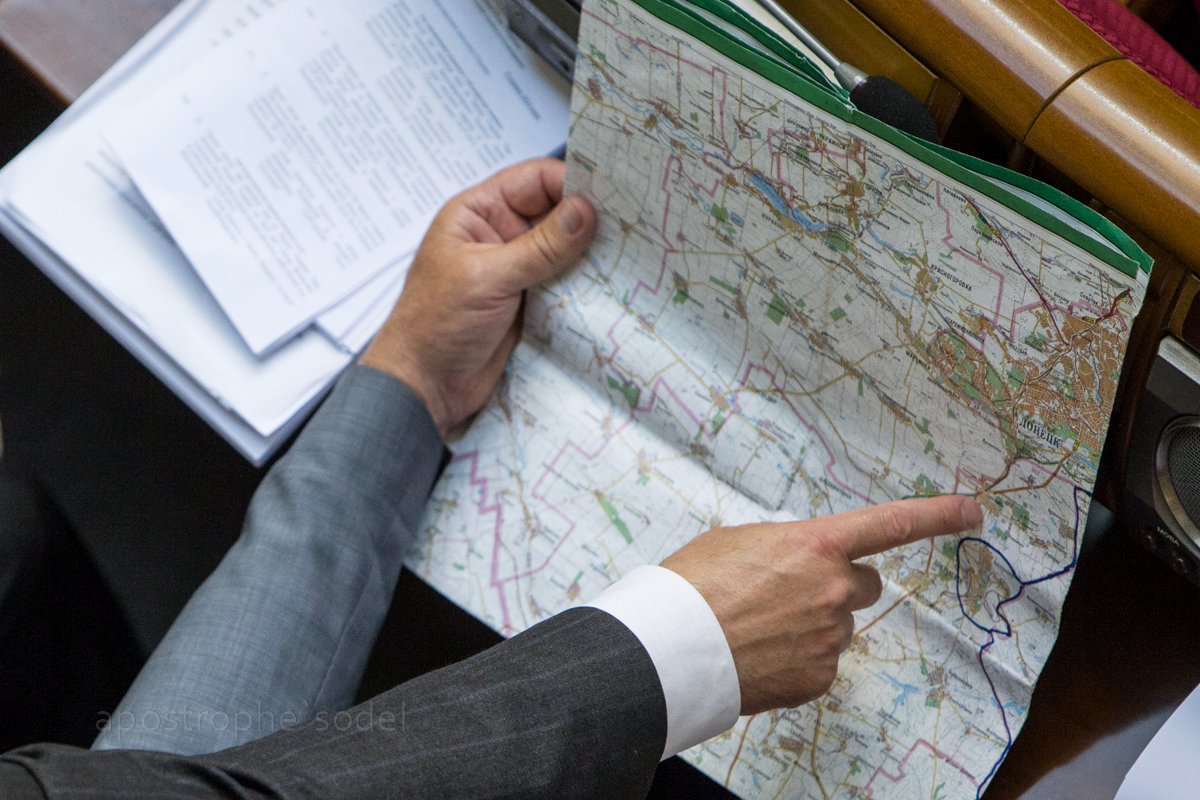In recent days, Moscow has renewed its effort to promote the idea of “Russian-Ukrainian brotherhood” and the notion that the two form a single nation, an effort that has three goals, none of which have anything to do with promoting the genuine restoration of ties between the two peoples.
Instead, this new push is intended to prevent Russians from concluding that their own travails are the result of the Kremlin’s policy in Ukraine, to win points with the West by putting out what to many will seem an anodyne view and then having Ukrainians reject it, and to lay the foundation for expanded Russian pressure on Ukraine to address Russian concerns.
(For a close examination of this campaign and the way it is playing out so far, see Почему кремлевская пропаганда призывает «брататься» с Украиной? and Почему больше не будет российско-украинского «братства».)
Ukrainians overwhelmingly have seen through Moscow’s intentions and rejected this latest “friendship” offensive, something that has prompted those Russians who have participated in it to express their regrets and even anger about the Ukrainians’ failure to accept their outstretched hands.

In a commentary on the Grani portal today, RFE/RL
commentator Vitaly Portnikov provides a compelling explanation of why that is so and describes precisely what Russians would have to do if they were ever to have any hope that their offer of friendship with Ukrainians would be credible in the future.
Portnikov says he could deliver a long lecture on history and point out that Russians should not accept the notion that “three centuries of occupation will make the occupiers one people with the occupied. And even centuries of relative equal existence,” he adds, “will not do so either.”
“The English and the Scots are not one people, true?” he asks rhetorically. And the Castilians and the Catalonians are not either. And even the [ethnic] Russians and the Tatars [the second largest ethnicity in Russian Federation -- Ed.]” – and he asked “forgiveness” for his “political incorrectness” – are not one people although you still live together in one state.”
But arguing about history is never all that useful, Portnikov says, and so he will explain why Ukrainians now view Russians as they do by making reference to his own experience as a member of a family who lost many of its older generation in the Holocaust and might be expected to hate Germans but does not.
When he became an adult, Portnikov says, he realized that “German Jews hardly felt themselves alien among the Germans and many of them, indeed, almost all, viewed themselves as Germans of the Jewish faith. And I assure you that these people were less prepared to the wholesale destruction of their compatriots than Ukrainians were to Russia’s attack on them.”
The commentator says that he did not come to terms with the Germans because of any collective repentance by them. In general, he says, he doesn’t believe in such collective repentance and especially repentance by those who have been defeated. Instead, he came to terms with the Germans because of “one single man, Willy Brandt.”
When Brandt came to the memorial to the Warsaw Ghetto uprising, he got down on his knees before these victims of the Nazis; and the picture of him doing so, Portnikov says, has reconciled him with the Germans.
“Brandt did not have any relation to the crimes of Hitlerism. None at all. He left Germany immediately after Hitler came to power. He struggled against Nazism all the years of its existence. He became a Norwegian citizen and returned to his motherland in a Norwegian military uniform,” Portnikov continues.
Consequently, “he could calmly and even dispassionately look on a memorial to people with whose murder he had no relation. More than that, he did everything he could that that would not occur … But [Brandt] felt a responsibility because the more your non-involvement, the more your responsibility before the victims of the regime which exists in your own country.”
“It isn’t important whether there is one people or two; it isn’t important what Ukrainians say or write to you – you can’t even imagine what Jews could have written to the federal chancellor of Germany in 1970,” Portnikov say. What is important is that you have the desire to “fall on your knees at the grave of every Ukrainian” who has died in this conflict.
Only a desire is necessary. “Nothing else.” Ukrainians don’t need anything else from the Russians, and “this is the only thing which can perhaps something decades from now reconcile us, your repentance and your understanding of our pain.”
It is possible that Russians can’t understand this and still view the war as something alien to them, especially if they personally opposed it. But they must ultimately recognize that for Ukrainians, this is their war, and they know who caused it and inflicted the pain they feel so intensely now.
Those Russians who have supported Ukraine at this difficult time do themselves honor “whatever [they] think about one or two peoples. But please grow up. Learn at long last to take responsibility for your own state, for its crimes and its mistakes. And understand that the level of your responsibility is 100 percent greater than that of the criminals and fools” who do not understand.
And there is an additional reason, Portnikov says. “On this understanding depends not our future but your own.”





